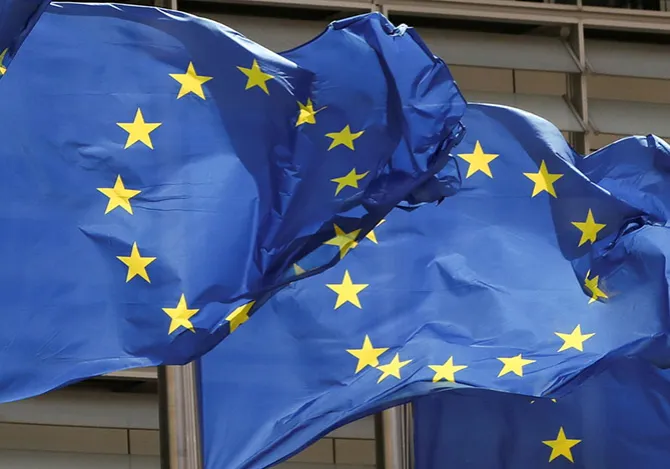-
CENTRES
Progammes & Centres
Location
Time and again, Europe has reiterated that it would support Ukraine for “as long as it takes”, but recent months have shown war fatigue amongst Ukraine’s primary backers

While the world celebrated the onset of 2024, Russia and Ukraine ushered in the new year with fresh attacks on each other. Since the beginning of the war in February 2022, the Western alliance has steadfastly supported Ukraine—politically, financially, militarily and morally—in its war effort against Russia. Time and again, Europe has reiterated that it would support Ukraine for “as long as it takes”. However, recent months have displayed mixed signals and war fatigue amongst Ukraine’s primary backers—European countries that have collectively provided over US$100 billion in assistance to Ukraine, and the United States (US) that has so far provided over US$75 billion.
Domestic economic concerns including high inflation and cost of living are making it difficult to sustain public support for the war and continue sending blank cheques to Ukraine.
In several European countries, electoral wins by populist parties, often deploying anti-Ukraine campaign rhetoric, have contributed to waning support for Ukraine. In Slovakia, the first NATO country to send fighter jets to Ukraine, left-wing populist Robert Fico, who campaigned to end Ukraine's military support, won elections in November. In Poland, previously amongst Ukraine’s strongest backers, a dispute over Ukrainian grain exports soured ties with Kyiv. In the Netherlands that led the effort to supply F16 fighter jets to Kyiv, hard-right politician Geert Wilders’s gains in the Dutch election have made support uncertain. In a hoax call with Russian pranksters, Italian Prime Minister Giorgia Meloni confirmed creeping war fatigue.
Domestic economic concerns including high inflation and cost of living are making it difficult to sustain public support for the war and continue sending blank cheques to Ukraine. Moreover, the much-hyped turned sluggish Ukrainian counteroffensive that began in June last year failed to produce tangible breakthroughs, adding further pressure on governments to negotiate an end to the war.
Prominent politicians such as EU Foreign Policy Chief Josep Borrell and French Foreign Minister Catherine Colonna have asserted continuation of support for Ukraine. But despite these reassurances, unravelling realities point otherwise.
In November 2023, a prospective aid package for Ukraine threatened to shut down the US government. With impending American elections bringing a greater focus on domestic concerns, the diversion of attention from Ukraine to the more recent Israel-Hamas war, and scant Western budgetary resources, Ukrainian President Volodymyr Zelensky may well be clutching at straws.
The upcoming European Parliament elections in June and the competitive scramble for the EU’s top posts may further distract from Ukraine’s plight.
Even in Europe, the Middle East situation has somewhat taken the spotlight off Ukraine, where the humanitarian catastrophe in Gaza is increasingly dominating high-level meetings. At the latest EU Council summit in December, Hungary played its familiar spoiler role by vetoing a proposed aid package of 50 billion euros to Ukraine. Moreover, the upcoming European Parliament elections in June and the competitive scramble for the EU’s top posts may further distract from Ukraine’s plight.
Despite the likelihood that further aid will go through, securing new funding amidst strong opposition from Republicans in the US Congress, spoilers such as Hungary in the EU, and anti-EU populist parties reigning across the continent is becoming more and more challenging both in Washington and Brussels.
Meanwhile, individual member states such as Germany, which has pledged to provide military support worth 8 billion euros this year, are taking matters into their own hands. In its 20th such package, Finland recently pledged 100 million euros worth of military aid to Ukraine. However, with cracks appearing within the EU coupled with dwindling American support, clouds loom over the “quality and quantity” of Western support to Ukraine, which as Zelensky reiterated, is essential to Ukraine’s success on the battlefield. The results of recent surveys such as one conducted by Bruegel testify to the European public’s weariness and waning enthusiasm in supporting Ukraine. A poll by the Kyiv International Institute of Sociology indicates that twice as many Ukrainians believe the West is tired of the war.
A poll by the Kyiv International Institute of Sociology indicates that twice as many Ukrainians believe the West is tired of the war.
At the December summit, the European Council decided to open negotiations for Ukraine’s EU membership—a critical step for Ukraine’s future even though becoming an EU member is a tedious process spanning years and possibly, even decades. Yet for a country on the battlefield, accession prospects are no consolation or substitute for immediate military support.
On the other hand, Russia has continued to receive support from Iran and North Korea in the form of drones, artillery shells, and other forms of ammunition. Dual-use technology from China, used for both civil and military purposes, has also been critical to shoring up Moscow’s defences. Furthermore, with help from its allies, Russia is outpacing the Western alliance in terms of arms production, with reports of current Russian production levels being seven times that of the West.
As the war nears the two-year mark and Moscow’s fantasy of Western fatigue starts to bear fruit, Ukraine’s fate hangs in the balance. Meanwhile, Europe is realising the pitfalls of its “as long as it takes” approach. After all, reality is stronger than rhetoric.
Shairee Malhotra is Associate Fellow at the Observer Reseach Foundation
The views expressed above belong to the author(s). ORF research and analyses now available on Telegram! Click here to access our curated content — blogs, longforms and interviews.

Shairee Malhotra is Associate Fellow, Europe with ORF’s Strategic Studies Programme. Her areas of work include Indian foreign policy with a focus on EU-India relations, ...
Read More +